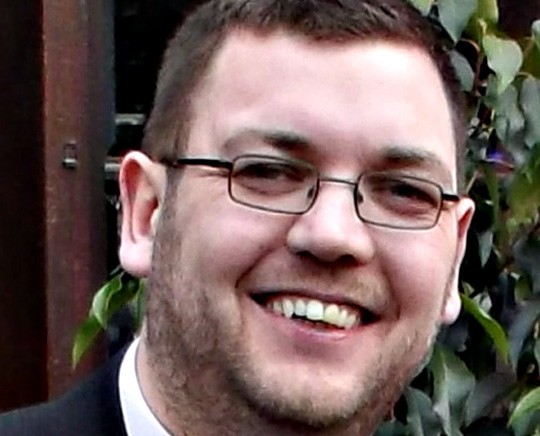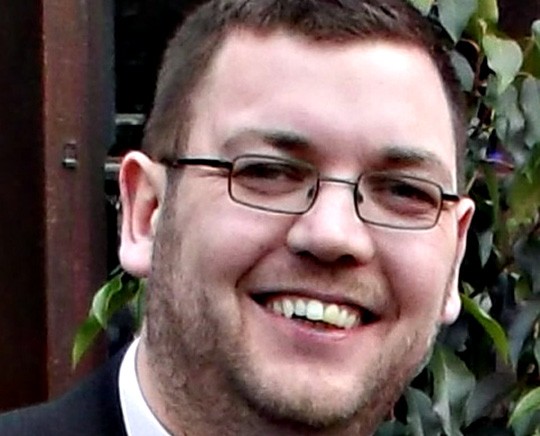2013 has been a great year for psychological crime fiction, but judging by the publishers lists for 2014 fans of police procedurals will have plenty of treats in store, with some very exciting debuts slated for the spring, including Dead Gone the first offering from former CFL contributor Luca Veste. Set in Liverpool, it focuses on a police hunt for a serial killer who is carrying out some strange experiments on the people he kidnaps. Luca was kind enough to join me for a chat about it…
Tell us a bit about Dead Gone?
Dead Gone introduces the detective pairing of DI David Murphy and DS Laura Rossi who are investigating the murder of a student at the City of Liverpool University. Attached to her, is a letter from her killer which details a famous unethical psychological experiment performed on the victim, resulting in her death. Convinced at first that the murderer is someone close and known to the victim, Murphy dismisses the letter as a bid to throw them off the scent… until more bodies are found, each with their own letter attached.
Where did the inspiration behind the storyline come from?
I’m a mature student, studying psychology and criminology. In one of the first psychology lectures we had, as a jokey aside type of thing, the lecturer told us all about past psychology experiments that used to happen before someone decided ethics should probably get involved and that giving people drugs without them knowing was probably wrong. There’s this list of experiments, most involving animals, and I sat there and thought – because I’m both a writer and a little strange – I wonder what would happen if you did that to a person? That thought came directly after the name Dr Harry Harlow was mentioned, and I became a little obsessed with his studies on attachment which were carried out mainly on monkeys. The opening scene in the book was written that night.
How has your course shaped the development of the book?
If I hadn’t been in that lecture, the novel would have been much different! Apart from that, it’s been hugely influential in giving me an insight into psychological theories – especially in death and grief – which I hope comes through in the story.
The serial killer sub-genre is massively popular with readers, why do you think it has such enduring appeal?
I think it plays into our need for resolution and explanation for what is arguably the most unexplainable of human acts. It’s long been suggested that readers use fiction to live out their own fears vicariously, knowing in the vast majority of cases the hero will prosper – that good versus evil paradigm. Packaged up in a novel, and most often resolved to a satisfactory conclusion, it provides a sense of balance to what is often not the case in reality. It would be difficult, but not impossible, to have someone like Harold Shipman in a fictional novel, as we can only guess at his motives. I think we kind of hate the not knowing. Serial killer novels give us access to those thoughts and motives.
Plus, there’s a ton of people who just enjoy reading about the most violent and shocking acts… just don’t swear too much doing so, and leave pets alive.
Liverpool – the setting for Dead Gone – is having something of a moment within crime fiction, what makes it such a great location?
It does seem so, with Kevin Sampson turning his hand to police-led crime fiction, Martin Edwards, Helen Walsh, and Ed Chatterton… there’s a fair few of us now. I think it’s a city with many facets to its character. Liverpool is a city in flux, the capital of culture in 2008 brought in a boatload of money which has begun to transform the landscape near the docks and city centre – whilst we also have some of the most deprived areas in the country within the city. The history of the docks means we have a very mixed cultural element also. There is so much to explore within the city, that there is always a rich vein of stories to tell.
What drew you to crime writing specifically?
It’s what I enjoy reading, so it made sense really. I love all you can explore within the genre, whilst also creating an exciting read at the same time. You can write about high concepts, but keep a reader interested in what happens. I love characters as well, and I find crime fiction is often the best at presenting the most interesting and believable characters in fiction.
You’ve been an active member of the crime community online for a couple of years now. How important do you think it is for authors to get involved?
I think most publishers believe it is more important now, due to the rise in social media etc for building a profile and finding new readers. I think it goes further though, in that it also becomes a great place to meet people who are as passionate as you are about crime fiction, which can often be very helpful in those dark and lonely times when you question what the reasoning is behind sitting at a computer for hours a day writing two words an hour.
What’s can readers expect next from you?
I’m just finishing the second Murphy and Rossi novel, which explores vigilantism and societies view of youth. We have a ridiculous number of young people who are unemployed or not in education, which has led to differing opinions about what we should do about a growing group of disenfranchised youth. On one side, we have those calling for a return to the days of national service, more discipline and the like, whilst on the other, a better understanding and more investment put in to help those young people who have lacked opportunities, with shades of uninterested grey in the middle. I thought it was an interesting theme to explore and just added a bit more violence and thrills to it.

